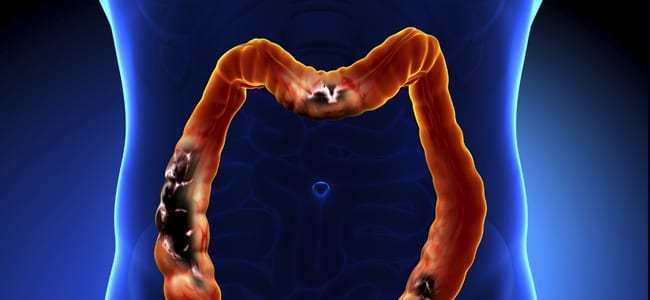Diverticulosis is a very common condition, especially in inhabitants of the Western Hemisphere, where our diets tend to include more animal products and carbohydrates, and fewer plant products. This relative shortage of plant fiber results in greater solidification of fecal material as it traverses the colon. The higher pressures needed to propel this solid result in the blebs. Many people change their dietary habits with increased awareness of the importance of healthy eating, but the diverticulosis that may have already formed does not go away. Increasing dietary fiber still may stop the progression of diverticulosis, and probably decreases the risk of diverticulitis, among many other health benefits.
If you’ve had a colonoscopy or a CT scan that shows diverticulosis, there’s no reason to panic. Most people with diverticulosis never have an illness due to this condition. It would be wise to increase your fiber intake, however. The healthiest way to do this is by eating lots of uncooked, leafy greens, other raw vegetables, and plenty of unprocessed fruits. The medical evidence that specific foods such as nuts, seeds, corn, and popcorn should be avoided is weak; however, experience suggests that eating large amounts of these foods is sometimes followed shortly afterward by attacks of acute diverticulitis.
If you have a sudden episode of constant, intense lower abdominal pain (usually on the left side) lasting more than a few hours, acute diverticulitis is a possibility, and urgent medical attention is prudent. Often, it can be treated on an outpatient basis, but at times the illness is serious enough to warrant hospitalization. The most severe cases require emergency surgery, which usually includes the creation of a temporary colostomy (attachment of the colon to the skin of the abdomen, and wearing of a bag for bowel movements). Prompt, appropriate medical attention usually permits us to avoid such drastic measures, but sometimes the diagnosis and treatment are delayed to the point that it becomes necessary to save a person’s life. The bottom line: if this could be happening to you or a loved one, and your doctor is unavailable, get to an emergency room without delay!
At Advanced Surgical Care, our skilled team, including general surgeon Dr. Joseph Gordon, registered nurses and medical office staff, care for people with a broad variety of conditions, such as benign tumors and cancers of many types. We also provide general surgery services for hernia, appendicitis, hemorrhoids, gallbladder disease and diverticulitis among others. Our offices are located in Fairfield County, CT in the towns of Danbury and Ridgefield.


